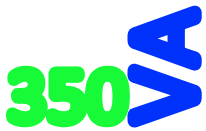The coronavirus pandemic has grounded most of the world’s airplanes for the immediate future. But when aviation reboots, pilots will need to be up to speed. It means brushing up on flight-deck skills. This is presenting a challenge as pilots remain housebound. Pilots require frequent training and ‘recency’ to be able to fly,
“Recency” means complying with regulations that stipulate a pilot must have successfully carried out three takeoffs and landings within the preceding 90 days.

There are also annual checks to comply with. These include the License Proficiency Check, which a pilot would have to do every year to keep their pilot’s license valid. Also, the airline that the pilot flies for will have to perform an Operational Proficiency Check every six months.
Most of these checks could be conducted in a simulator. These are realistic, and offer the highest definition and lifelike responses — just like flying the real thing. Simulators are also important to help pilots keep their skills sharp, but there is no substitute when it comes to ratings, training and certifications.
Pilots need to access real, full-scale flight simulators. But for that to happen, simulators need to be available. Many facilities offering simulators are closed. There is also the issue of the availability of instructors and examiners to conduct checks. A co-pilot also needs to be present. There’s going to be a significant backlog of available simulator slots.
When airlines do want to get back to normal operations they won’t be able to do it instantly. It’s all an enormous undertaking.
Additionally, there are regular fire and smoke training requirements, where pilots have to go into a smoke-filled aircraft and evacuate it. There are also first aid courses and crew resource management training, which involves assessing how crew members work together as a team.
Combine the complexity of the different types of training and certifications that flight crew might have to catch up on if the grounding persists for a prolonged period with the fact that the majority of the world’s 290,000-plus active pilots are sitting at home, and the scale of the imminent problem becomes all too apparent.
To help alleviate the pressure accumulating from the potential expiration of the pilots’ medical certificates and ratings, time extensions are being granted worldwide by regulatory authorities.
Deferring the expiry of licenses and certificates is certainly helpful. But all of this is incredibly stressful for the airlines’ workforces.

Recruitment
Over 40 airlines have grounded their entire fleets, and the majority of others have grounded 80-90% — it’s just unheard of. That gives you an idea as to how many pilots are not flying aircraft. A lot of flight crew are either grounded on minimal pay or being asked to take unpaid leave.
In some countries, airlines are operating from the furlough or pay subsidy schemes, and in worst case scenarios crew are being terminated. Recruiting of flight crew has pretty much dried up at the moment while airlines are rightly focusing on trying to consolidate their finances just to survive.
What they want to do is keep their recruitment moving to capitalize on the fact that there are a lot of skilled crew in the market right now. Face-to-face interviews are now replaced with online tools such as Skype. Airlines can build up pools of candidates so that as soon as the sector is back into recovery mode and restrictions start to subside they can jump into action.
VA350 can assist by conducting applicant documentation screening and getting candidates to a point where they can go no further, until things start to move again.

Keeping your cockpit skills
So besides using simulators, how can pilots stuck at home keep their cockpit skills? Pilots could use this time of grounding for educational improvement.
In an age where certain aspects of the flight deck are automated, pilots need to know, procedurally, how to set up the flight deck, which buttons to push and which checklists to read.
You start forgetting things if you don’t use them. And much of what pilots do is cognitive based. If you can keep that alive, then you’re not going to lose proficiency.
It would be nice if the airlines made available online training tools that were available during initial training or during the initial type rating, so pilots could go and maintain proficiency while at home.
Carriers could also have the ability to track and see which of their pilots are actually utilizing those tools. In the past before online pilot training was an option, pilots made flashcards also called a “paper trainer” , to practice cockpit procedures at home.
You just physically move and touch the button because the motion of actually touching where you would be touching in the airplane helps to instil it into memory.
Keeping a healthy mind
Beyond the practicalities of brushing up procedural skills, pilots need to keep their minds in good shape.
Flight crew are used to quite a structured way of working and are conditioned to knowing what is coming up in the next month in terms of their flight schedules. There are specific resources available, and there is a peer support network program staffed by pilots for pilots for them to raise, confidentially, concerns of well-being and mental health.
Many airlines already have these in place ahead of when the regulation comes out, pointing pilots towards those facilities within their airlines where they can share concerns, by having people to talk to about their anxieties and what they are going through.
Pilots are not used to sitting around, they are thinking ahead to the time when things hopefully resume and scheduled flights start up.
At 350VA we can assist airlines and pilots in writing custom training programs in the form of manuals or online training to assist flight crew to bridge this challenging time and to keep both their mind and technical skills at the highest professional level.

